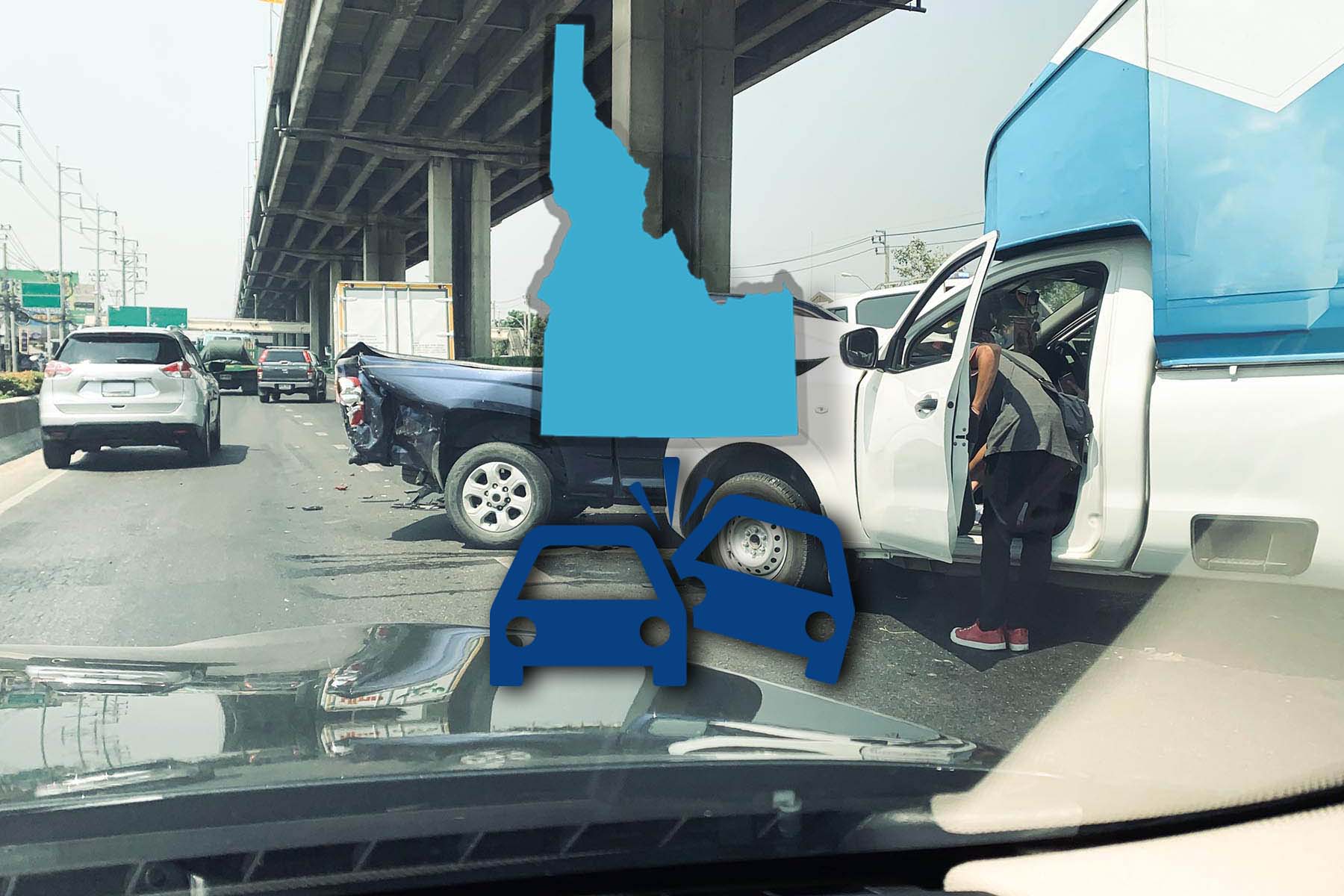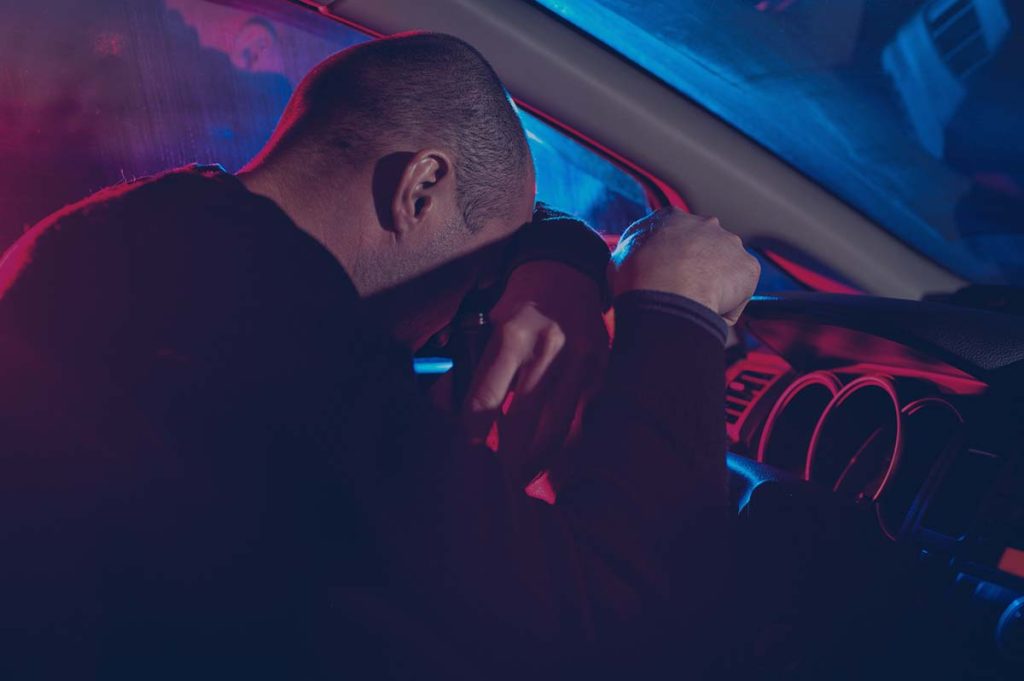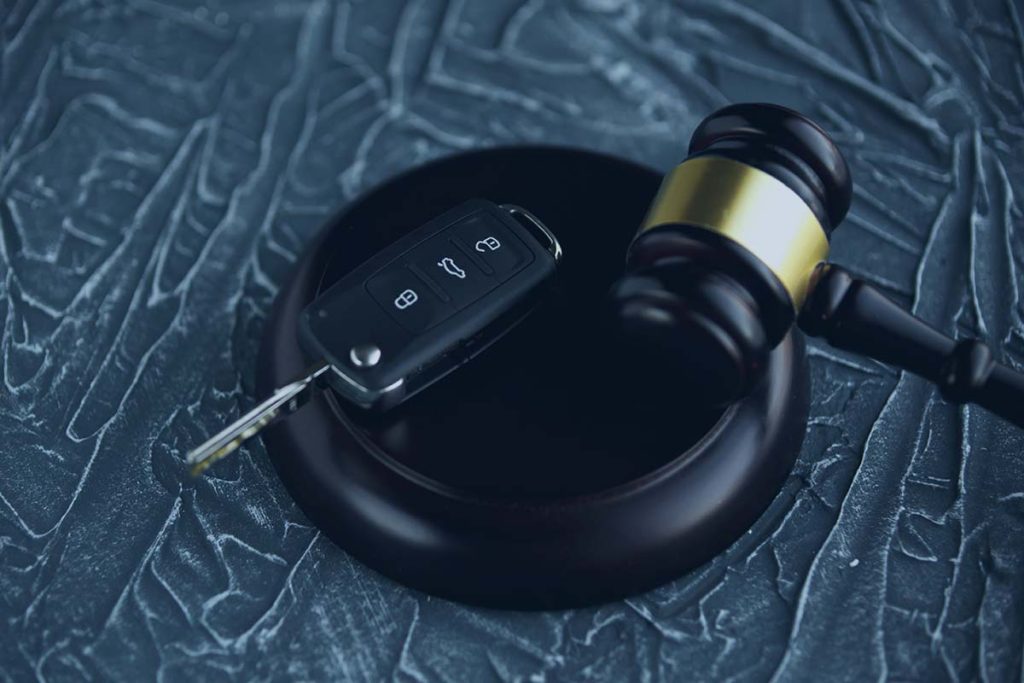
Idaho hit and run laws: Is leaving the scene of an accident a felony?
- Idaho hit and run laws: Is leaving the scene of an accident a felony?
- Section 49-1301 accidents involving damage to vehicle explained
- Idaho hit and run laws: section 18-8007 leaving the scene of an accident explained
- What is the penalty for leaving the scene of an accident in Idaho?
- When does a hit-and-run turn into a felony in Idaho?
- What is the statute of limitations on hit and run in Idaho?
- How is fault determined in Idaho?
- Idaho hit and run defenses
Under 49-1301, Idaho hit and run laws, leaving the scene of an accident without offering reasonable assistance to the victim is a felony if the accident results in death or injury.
Quick take
- DUI hit and run is a felony in Idaho.
- You have a legal obligation to remain at the scene and render reasonable assistance to the victim.
- A hit-and-run that results in property damage alone is a misdemeanor.
- If the resulting damage surpasses $1500, or if the victim suffers injury or death, you must file a police report.
- Do not admit fault at the scene of an accident.
References
- Section 49-1301 accidents involving damage to vehicle
- section 18-8007 leaving the scene of an accident
Section 49-1301 accidents involving damage to vehicle explained

In Idaho, an accident becomes a crime if the driver flees the scene without fulfilling the requirements of section 49-1301. However, if the accident only results in property damage, fleeing the scene is a misdemeanor.
What are your obligations at the scene of an accident?
- Immediately stop your vehicle without interfering with the normal flow of traffic more than is necessary.
- You must remain at the scene of the accident until you give your name, address, and contact information to the property owner or law enforcement.
Note that the law does not consider you liable for the accident if you move the vehicle.
What if you cannot locate the vehicle owner?
If a law enforcement officer is not at the scene and you cannot locate the property owner. You may leave a note on a conspicuous section of the vehicle containing your name, address, and contact information. You should also report the incident at the nearest police station. Failure to report the incident may result in charges.
Idaho hit and run laws: duty to report an accident
Under state law, section 49-1305. You have a legal obligation to report any accident that results in death, injury, or property damage surpassing $1500. If you are physically incapable of reporting the accident, a person in your vehicle must file the report.
Idaho hit and run laws: section 18-8007 leaving the scene of an accident explained
As mentioned, leaving the scene of an accident that results in death or injury in Idaho is a felony. If the victim is incapacitated, injured, or deceased, the statute requires you to:
- Immediately stop the vehicle and render reasonable assistance, including calling emergency services and arranging for transportation of the victim to a hospital or other care facility.
- Do not obstruct traffic more than is necessary.
- Upon request, you must exhibit your driver’s license to the victim, passenger, or law enforcement.
what if you are incapable of rendering reasonable assistance?
The requirements above only apply if you are not incapacitated or seriously injured. Consequently, if you suffer serious injury and drive yourself to the hospital or someone else moves you from the scene, you have committed no crime.
On the other hand, if you have suffered no injuries and you or someone else in the vehicle flees the scene, the fleeing driver may also face hit and run charges even if the individual was not responsible for the accident. The point is, an accident turns into a crime if the vehicle involved flees the scene without fulfilling the requirements mentioned above.
What is the penalty for leaving the scene of an accident in Idaho?
- Hit and run in Idaho resulting in property damage: misdemeanor, punishable by up to one year in prison and a fine.
- Hit and run resulting in death or injury: felony, punishable by up to five years in prison and a fine of up to $5000.
Idaho hit and run laws section 49-1301 through 18-8007: what to remember
- Fleeing the scene of an accident that results in death or injury is a felony.
- You have a legal obligation to render reasonable assistance and notify law enforcement immediately after an accident.
Idaho hit and run laws: fleeing the scene, reckless driving, and disorderly conduct

Note that in Idaho, fleeing the scene of an accident, evading police, reckless driving, and disorderly conduct are all possible charges that may apply to anyone who runs from the scene of the accident. Furthermore, the charges escalate if the accused was intoxicated or under the influence of drugs or alcohol at the time of the crime.
That raises the question:
When does a hit-and-run turn into a felony in Idaho?

As mentioned, if anyone suffers injury or death and the driver flees the scene, that individual is guilty of a felony. Other vehicle-related felony charges that may apply include vehicular homicide and manslaughter. A hit and run would become homicide if the driver had a motive to harm the victim.
That said, what you need to remember is:
- Eluding the police in Idaho is a misdemeanor.
- Vehicular homicide and manslaughter are felonies.
- Reckless driving is a misdemeanor that may escalate into a felony if anyone suffers death or injury.
- Dui resulting in death or injury is a felony.
What is the statute of limitations on hit and run in Idaho?
If someone else’s negligence actions result in death or injury, the victim or family member has two years to file a wrongful death or personal injury claim. Note that if the victim dies. The countdown begins at the time of death. And if the victim suffers an injury, the countdown starts at the time of the incident.
If the accident only results in property damage, you have three years from the time of the accident to file a claim.
How is fault determined in Idaho?
Idaho is a pure comparative negligence state – Meaning, your percentage of fault reduces your award.
Note that if you are 50% (or more) responsible for the accident, then you are not eligible for compensation. When determining who is at fault, the state considers intention, recklessness, and negligence.
Therefore, after an accident. It is in your best interest not to admit fault. If you admit fault, your insurance premiums will increase, and you may deny yourself compensation. Because of that, we recommend consulting with an attorney before filing your police report or talking with your insurer.
At the scene. Avoid using language that may be interpreted as an admission of fault. For example, do not apologize or take responsibility for the accident. Instead, only give your side of the story without placing blame on yourself.
Note, section 6-801 “comparative negligence” reads, quote.
“Contributory negligence or comparative responsibility shall not bar recovery in an action by any person or his legal representative to recover damages for negligence, gross negligence or comparative responsibility resulting in death or injury to person or property if such negligence or comparative responsibility was not as great as the negligence, gross negligence or comparative responsibility of the person against whom recovery is sought, but any damages allowed shall be diminished in the proportion to the amount of negligence or comparative responsibility attributable to the person recovering.”
That means the victim has the right to take civil action after an accident or hit and run. We recommend consulting with an attorney to choose which claim to file. Civil penalties for a hit and run in Idaho include:
- Lost wages
- Medical bills
- Damage to property
- Punitive damages
Note, if the driver does not render reasonable assistance to the victim, commits an egregious crime, or shows a lack of remorse, the punitive damages could be high. Therefore, document the driver’s actions at the scene and do not take the law into your own hands.
Idaho hit and run defenses
To convict you of a hit and run in Idaho, prosecutors must prove beyond reasonable doubt that: (1) you drove the vehicle. (2) the vehicle was involved in an accident resulting in death, injury, or property damage. (3) you intentionally left the scene.
Because of that – If you were not behind the wheel at the time of the accident and have evidence to back your claim. Then you have committed no crime.
You feared for your safety
Note that your safety trumps your responsibility at the scene of an accident. Meaning, if you had good reason to fear for your safety, for example, if the victim became violent, forcing you to flee and report the incident, then you are not guilty of hit and run.
That said. Circumstances are different; thus, your defense strategy will depend on the facts presented. Consequently, we recommend consulting with a defense attorney immediately after an accident.
Other Idaho Laws